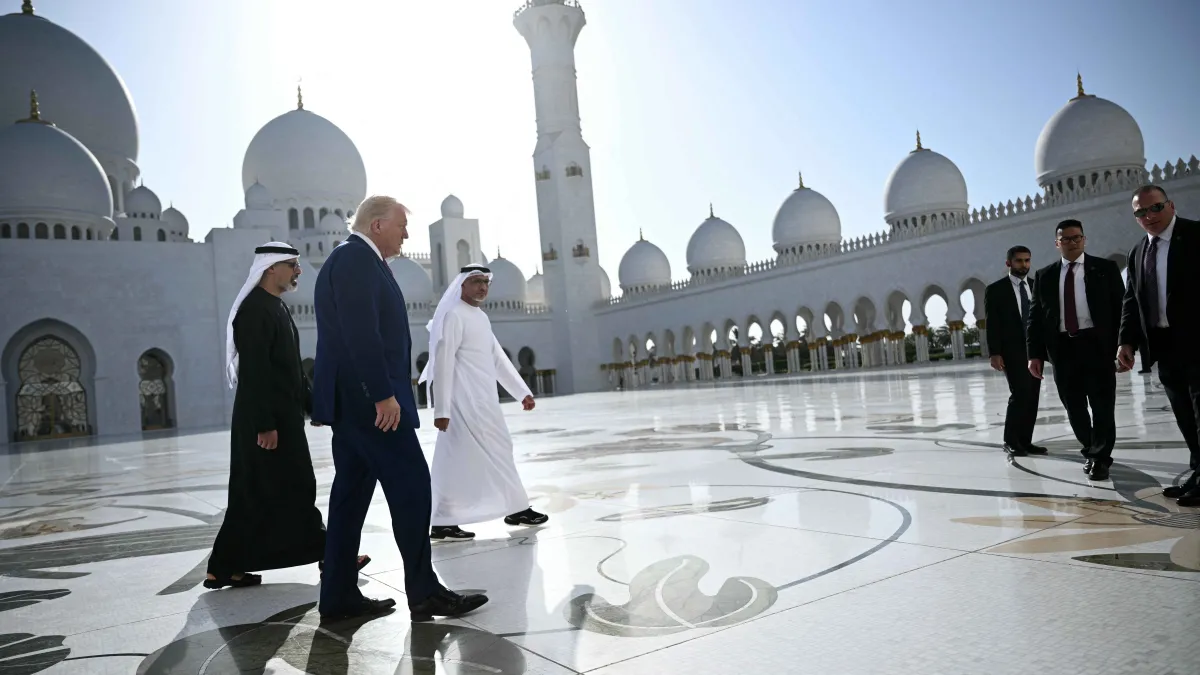Iran is set to hold high-level talks with Britain, France, and Germany in Istanbul today, following U.S. President Donald Trump’s declaration that a renewed nuclear agreement with Tehran is “getting close.” The meeting comes at a critical juncture as European powers weigh triggering sanctions ahead of an October deadline.
Diplomatic Momentum Builds
Deputy Foreign Minister Abbas Araghchi confirmed the talks will be held at the deputy foreign minister level, less than a week after a fourth round of indirect U.S.-Iran negotiations mediated by Oman. While Tehran described these talks as “difficult but useful,” a senior U.S. official expressed encouragement about progress made.
Speaking during his four-day Gulf states visit, Trump expressed confidence in the ongoing diplomatic efforts. “We’re getting close,” he said in Qatar. “We’re not going to be making any nuclear dust in Iran.” The president later characterized his approach as offering Tehran an “olive branch,” while warning the opportunity “will not last forever.”
U.S. news outlet Axios reported that Washington presented Iran with a written proposal during Sunday’s talks, though Araghchi firmly denied receiving any document. Nevertheless, he stated Iran stands “ready to build trust and transparency about our nuclear programme in response to the lifting of sanctions.”
European Sanctions Dilemma
The meeting occurs as the European trio—known as the E3—considers whether to trigger the 2015 deal’s “snapback” mechanism, which would reinstate UN sanctions in response to Iranian non-compliance. This option expires in October.
Araghchi has warned that such a move could lead to “irreversible” consequences, potentially provoking “a global nuclear proliferation crisis that would primarily affect Europeans themselves.” However, writing in French weekly Le Point, he also struck a conciliatory tone, saying Tehran was “ready to turn the page” in its relations with Europe.
The original Joint Comprehensive Plan of Action (JCPOA) was signed in 2015 by Iran, the U.S., Britain, France, Germany, China, and Russia. Trump abandoned the agreement during his first term in 2018, reimposing severe sanctions on Iran’s banking sector and oil exports. Tehran responded by gradually scaling back its commitments.
Enrichment Remains Contentious
Iran currently enriches uranium to 60% purity—far above the 3.67% cap set in the original agreement but below the 90% needed for weapons-grade material. Tehran maintains its nuclear program is peaceful and remains under International Atomic Energy Agency supervision.
“We do not seek nuclear militarisation,” Iran’s atomic energy chief Mohammad Eslami emphasized on Wednesday, while firmly stating that “the dismantling of enrichment is not accepted by Iran.” However, he signaled potential flexibility on temporary limits to enrichment levels and stockpiles.
Trump has threatened to intensify his “maximum pressure” campaign if talks fail, aiming to “drive Iranian oil exports to zero.” News of the potential diplomatic breakthrough caused oil prices to plunge more than three percent as markets anticipated Iranian exports possibly returning.
During his Gulf tour, Trump met with UAE President Mohammed bin Zayed Al Nahyan in Abu Dhabi after departing Qatar. The visit highlighted strengthening U.S.-UAE relations, with the Gulf state announcing a $1.4 trillion investment plan with the U.S. in March.


